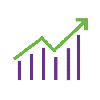Bangladesh, ranked 139th, improves on Human Development Index
Bangladesh moved up three spots and ranked 139th out of 188 countries in Global Human Development Index (HDI) 2015, says the Human Development Report (HDR) 2016 launched on Wednesday, 5 April 2017 at NEC Conference Room, Planning Commission in Dhaka. As per HDR 2015, Bangladesh’s position was 142nd out of 188 countries. The General Economics Division (GED), Planning Commission and United Nations Development Programme (UNDP) Bangladesh jointly organized the launching of HDR 2016 in Bangladesh following the global launch in Stockholm, Sweden less than two weeks ago. According to the report, which is published annually, Bangladesh categorized as “medium human development” country with HDI value stood at 0.579 in 2015, which increased from 0.545 in 2010. The HDI value of Bangladesh was 0.468 in 2000 and 0.386 in 1990, clearly showing an upward trend in human development in the country. The report also reveals a higher average annual HDI growth rate of Bangladesh (1.64 per cent) during 1990-2015 compared to all other South Asian countries, including India (1.52 per cent). Bangladesh ranked fifth in South Asia, falling behind Sri Lanka (73), the Maldives (105), India (131) and Bhutan (132). Norway (0.949) topped the list while Central African Republic (0.352) rest in the bottom. Devised and launched in 1990, HDI is a measure for assessing progress in three basic dimensions of human development: a long and healthy life, access to knowledge, and access to decent standard living. Addressing as Chief Guest, Planning Minister A H M Mustafa Kamal said, “Bangladesh has shown tremendous progress in human development over the last two decades. Our average annual growth of HDI is better than any other countries in South Asia. Our social indicators shows that we are doing better in health, education, life expectancy at birth while our per capita income is increasing.” According to HDR 2016, life expectancy at birth in Bangladesh stood at 72 years, expected years of schooling at 10.2 years, mean years of schooling 5.2 years, gross national income (GNI) per capita $ 3,341. State Minister for Foreign Affairs, Md. Shahriar Alam, said, “Bangladesh has become a role model among developing countries as its progress in recent years has impressed the world. We have to continue our development march for providing benefit to the people, especially the marginalized and excluded ones.” Principal Coordinator for SDG Affairs at Prime Minister’s Office, Abul Kalam Azad said, “Bangladesh has done tremendous jobs in achieving MDGs and we are taking all-out preparation to successfully implement the Sustainable Development Goals (SDGs) also.” Dr. Shamsul Alam, Member (Senior Secretary), GED, Planning Commission, who chaired the launching session, said, “Bangladesh is marching forward unabated both in economic and social fronts. We are graduating from a least developed country to a newly developing nation.” Dr. Selim Jahan, Director, Human Development Report Office, UNDP New York and lead author of HDR 2016 cautioned on paying too much attention to national averages, which often mask variations in people’s lives. Dr. Jahan made a presentation on key findings of the report and said, “In order to further advance, we need to examine more closely not just what has been achieved, but also who has been excluded and why. ” “The HDR gives us an insight to the development progress, but also raises two main questions - who has been left out in the development process and how and why did that happen. The data and analysis provided in the Report are an important baseline for policy making, to ensure more inclusive human development,” said Sudipto Mukerjee, UNDP Bangladesh Country Director. Among others, Rasheda K Choudhury, former advisor to the Caretaker Government was also spoke on the occasion. As worldwide almost 1.5 billion people still live in multidimensional poverty– reflecting acute deprivations in health, education and standards of living- the report stresses the importance of the 2030 Agenda for Sustainable Development (SDGs) and calls for far greater attention for empowering the most marginalized in society. (Source: UNDP website)













